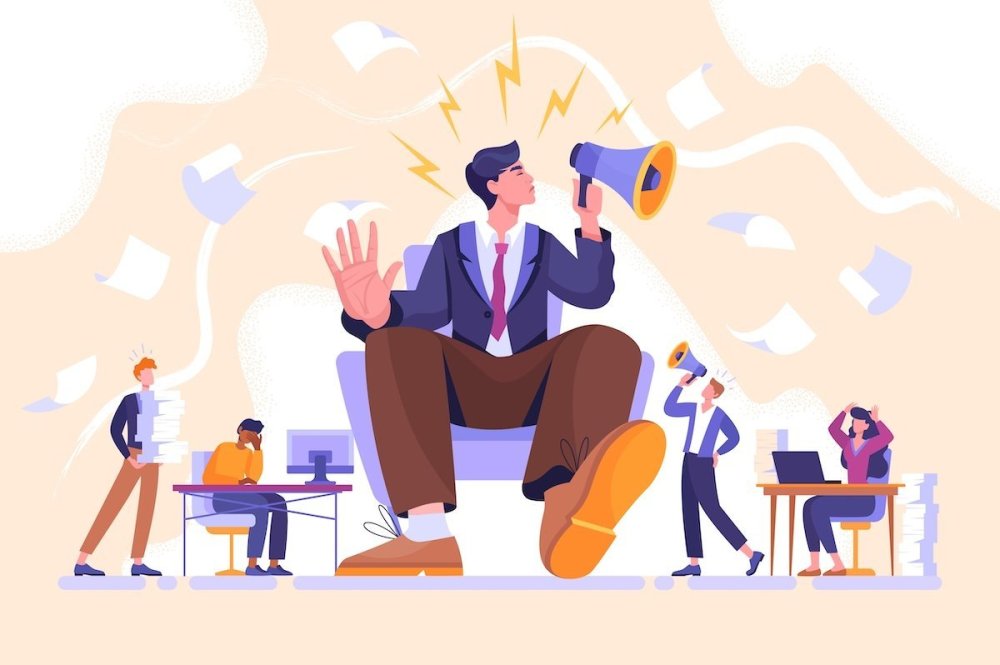A lack of self-awareness is a personality trait that negatively affects you and those around you. Dee Marques explains how to spot the signs of poor self-awareness – such as blaming others and failing to handle feedback – as well as offering tips on how to change this behaviour.
What’s one thing that most people think they have, but few actually do? According to psychologist and best-selling author Tasha Eurich, it’s self-awareness. Her research has revealed that although 95% of people claim to be self-aware, only 10% to 15% actually are.
And, in all honesty, when I look back over the past 15 years and compare the old me with the current me, the biggest difference I find is by far related to my level of self-awareness. In fact, becoming more self-aware has massively improved my quality of life, brought me emotional stability, and helped me feel strongly connected to life.
But the truth is, nobody is born with self-awareness. Let's take a look at how to detect when we’re lacking in this crucial skill and what we can do to improve self-awareness.
What does it mean to lack self-awareness?
Psychologists say that there are two types of self-awareness:
-
internal self-awareness refers to knowing your values, emotions, strengths, and blind spots. When we lack internal self-awareness, we’re out of tune with our emotions, motivations, and patterns.
- Then there’s external self-awareness, which is the ability to understand how others perceive us and the impact we make on them. If we lack external self-awareness, we’ll most likely have poor boundaries, and either be people-pleasers or find ourselves involved in interpersonal conflict more often than not.
The good news is that like all other life skills, self-awareness can be developed. But first, let’s explore some of the tell-tale signs of poor self-awareness.

Not listening to others is a sign of no self-awareness
10 signs someone has low self-awareness
Due to the nature of poor self-awareness, it's usually hard for those that have it to even entertain the idea of it, let alone become fully conscious of it. Knowing these symptoms or signs is a useful place to become aware of your – or someone else's – possible lack of self-awareness.
1. They’re blind to their blind spots
One of the clearest signs of having no self-awareness is a lack of personal reflection. People with a lack of self-awareness often move through life repeating the same mistakes – and blaming others for poor outcomes – because they’ve never examined the root of their actions or the role they played in keeping unhealthy patterns alive. And when someone isn’t aware of their blind spots, they’re creating barriers to their own growth.
2. They act first, regret later
Impulsivity tends to be high when self-awareness is low, as people with no self-awareness are usually driven by temporary emotions, without considering long-term consequences or the bigger picture.
“People with a lack of self-awareness often move through life repeating the same mistakes because they’ve never examined the root of their actions.”
These individuals often live in reaction mode rather than in intention mode, which over time can create a cycle of impulsivity, frustration, and pattern repetition – as well as collateral damage.
3. They respond defensively to feedback
While emotionally mature people see feedback as fuel for growth, emotionally unaware individuals feel threatened by it. Even constructive criticism feels uncomfortable for those people with a lack of self-awareness, and they will get defensive or change the subject. This is because lack of self-awareness usually goes hand-in-hand with a fragile self-concept, where feedback is seen as a judgement on personal worth and value.
4. They frequently blame others
People with a lack of self-awareness often externalise blame. When things go wrong, they quickly find the cause in someone else’s incompetence or bad intentions. This mindset keeps people stuck in a victim narrative, which makes it difficult to access real empowerment.
5. They can’t read social cues
Social interactions are filled with subtle signals that guide respectful communication, but those with no self-awareness often miss these cues. They may interrupt others, misread the mood or tone of the conversation, or fail to notice discomfort in others. In short, lack of self-awareness is a sign of underdeveloped social intelligence.
6. Constantly seeking the spotlight
Poor self-awareness can show as steering every conversation back to oneself or undervaluing other people’s experiences and achievements. This reflects a need for validation as well as a disconnection from the deeper self, which makes people mistake external recognition for internal value.

Those who lack self-awareness have controlling tendencies
7. They’re stuck in their comfort zone
There’s no way around it: growth requires discomfort, and those unaware of their fears or unconscious patterns often prefer to stay safe and comfortable. Instead of seeking new learning opportunities, people with a lack of self-awareness stick to what they know and resist anything that challenges their self-concept and/or status.
8. They lack emotional regulation
Emotional regulation is a skill built on self-awareness. Without it, people may lash out when stressed, overreact to small frustrations, or shut down when conflict appears. This lack of regulation is often tied to not recognising emotions and internal triggers early enough to address them and to respond to with intention.
9. They have controlling tendencies
Controlling habits like micro-managing people or situations often disguise themselves as “helpfulness” or “efficiency,” but they reflect a lack of trust in one’s own and in other people’s abilities.
“Even constructive criticism feels uncomfortable for those people with a lack of self-awareness, and they will get defensive or change the subject.”
What’s more, low self-awareness makes it hard to recognise how this behaviour undermines other people’s autonomy, perpetuating the pattern and damaging relationships.
10. They frequently offend or upset others
People who have a lack of self-awareness fail to distinguish honesty from bluntness. They may boast about being “brutally honest” or say they “tell it like it is”, but without considering timing, tone, or context, these unfiltered remarks create emotional distance and even resentment in others. Truth can be expressed with compassion – but only when we’re self aware.
RELATED: How to Let Go of Resentment and Bitterness in 7 Steps
Causes of low self-awareness
Here are a few reasons why someone may have a lack of self-awareness – people that have little or no self-awareness may have been exposed to one or more of these causes:
• Defence mechanisms Self-awareness brings us face-to face with some uncomfortable truths. To avoid the discomfort, some people may prefer to avoid the revelations that come with stronger self-awareness.
• Privilege When people are shielded from adversity, they may never feel called to explore their inner world and to work on their internal self-awareness, as they assume “all is well and it will always be”.
• Poor modelling We’re not born being self-aware, so if our upbringing or culture didn’t encourage reflection or introspection, we might grow up lacking in this respect.
• Busy or disorganised lifestyle When daily life is stressful or chaotic, it’s easier to live on auto-pilot than to set time aside to reflect on our thoughts, emotions, and reactions.
How to improve self-awareness
Luckily, self-awareness is a like muscle that can be trained. Here are some great starting points:
-
Find out where you are currently. Take the self-awareness test developed by Dr. Tasha Eurich.
-
Try journaling techniques. Write about your thoughts, emotions, and reactions to events. Here are some prompts you could use: “What triggered me today?” “What could I have done differently?” “How did my actions today align (or not) with my values?”. You can also try shadow work journaling.
-
Ask for feedback. Choose a friend or relative you trust and ask: “What’s one thing I do that you appreciate, and what’s one thing I do that sometimes rubs you the wrong way?” Go into these conversations to listen and to accept the responses, not to defend yourself. The next point is also essential if you do this.
-
Work on your listening skills. Whenever you talk to someone, focus on active listening by giving them your full attention instead of disconnecting to mentally rehearse your reply or steering the conversation towards yourself. This may seem obvious, but research shows that less than 2% of the global population knows how to listen effectively.

Deep listening is one step to becoming more self-aware
-
Socialise from a place of curiosity. Ask open-ended questions about other people’s opinions, feelings, and experiences (“What was that like for you?” or “How did you come to that conclusion?”). After, reflect on what this teaches you, how it makes other people valuable, and where it challenges your own assumptions.
-
Think before you act. Before letting unconscious mechanisms dictate your reactions, pause to unpack your thought process step-by-step. Ask yourself the following questions: “What did I actually see or hear – just the facts?” “How am I interpreting this, and why?” “What assumptions am I making about intent or outcome?” “What conclusions am I jumping to?” “What other explanations could there be?” “How will I respond?”.
Dealing with someone with low self-awareness
Since limited self-awareness is so common, you’re bound to have someone in your social or professional circle who isn’t self-aware. According to a Harvard Business Review survey of different workplaces, 99% of people interviewed said at least one of their colleagues showed lack of self-awareness.
Although you can’t do the inner work for others, there are some things you can do to keep the interactions as harmonious as possible.
MORE LIKE THIS
- How to Find Your Authentic Self: 8 Techniques
- 9 Tips For Constructive Criticism at Work
- How to Find Yourself Again: 10 Steps in Creating Clarity
For example, to minimise defensiveness and encourage introspection, approach with curiosity and avoid direct judgment. Instead of saying “you’re so harsh”, ask open-ended questions like “what exactly would you like to transmit with this?”, “do you think there could be another way to express this?”, or “how would you like other people to think about you?”.
Timing is important, so ideally you want to start this type of conversation once the person has shown some frustration at a situation or interaction where they’ve shown no self-awareness.
Lastly, know your boundaries. If interacting with someone who has no self-awareness becomes draining, tell them, “I need a moment to process this”. A firm but polite boundary protects your energy while signalling the impact without blame.
Takeaway: Self-awareness can be trained
Self-awareness isn’t a gift — it’s a skill we can all develop by cultivating curiosity, courage, and compassion. Every intentional check-in and every honest reflection counts when it comes to improving our levels of internal and external self-awareness.
And although it’s true that the work needed to develop better self-awareness can expose some uncomfortable truths about ourselves, the rewards are well worth it. As Dr. Eurich says, “developing self-awareness is linked to greater confidence, increased creativity, better decision-making, stronger relationships, and more effective communication.”
So, if you live with a lack of self-awareness and you’d like to be more aligned with your truest self and enjoy more grounded living, start by knowing yourself at a deeper level, one day at the time. ●
Images: shutterstock/mentalmind, shutterstock/Good Studio, shutterstock/fizkes
happiness.com | The fine art of being: learn, practise, share
Are you a happiness.com member yet? Sign up for free now to:
■ enjoy our happiness magazine with practical life tips
■ share and support others in our happiness forum
Written by Dee Marques
 A social sciences graduate with a keen interest in languages, communication, and personal development strategies. Dee loves exercising, being out in nature, and discovering warm and sunny places where she can escape the winter.
A social sciences graduate with a keen interest in languages, communication, and personal development strategies. Dee loves exercising, being out in nature, and discovering warm and sunny places where she can escape the winter.




Join the conversation
You are posting as a guest. If you have an account, sign in now to post with your account.
There are no comments to display.